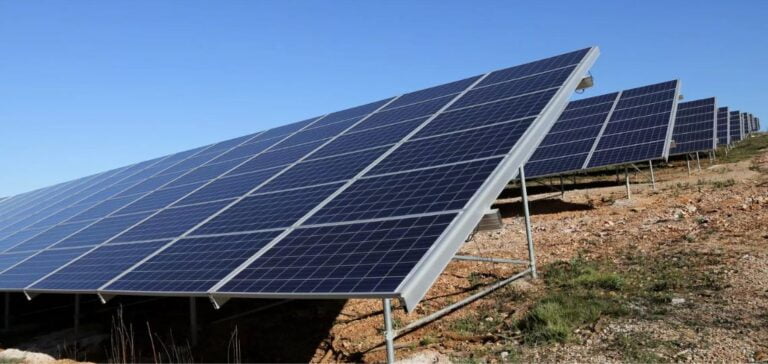The Italian government has banned the installation of ground-mounted solar panels in agricultural areas, citing the need to stop the “uncontrolled” installation of photovoltaic panels. The Minister of Agriculture, Francesco Lollobrigida, has confirmed that this ban excludes solar panel projects over crops and those financed by the European Union. This measure has raised concerns among players in the renewable energies sector. Coordinamento Free, a group of companies and environmental associations, fears that the ban will hamper a number of ongoing projects.
Impact on decarbonization targets
Coordinamento Free believes that this ban jeopardizes Italy’s efforts to meet its decarbonization targets by 2030. Last week, the G7 countries pledged to triple the world’s renewable energy capacity. Similarly, the COP28 conference in 2023 concluded with an agreement to triple renewable energies worldwide by 2030. According to Coordinamento Free, strict regulations on ground-mounted solar panel installations could undermine Italy’s commitment to these goals.
Guarantees on photovoltaic capacity
Gilberto Pichetto Fratin, Minister of Energy, assures us that the ban on ground-mounted solar panels on agricultural land will not compromise the government’s ambitions. He claims that Italy will still install 38 GW of photovoltaic capacity by 2030. However, the bill still has to be approved by Parliament, leaving many uncertainties about its implementation and its impact on the country’s renewable energy projects.
Exemptions and clarifications
The ban does not apply to projects installed above crops, leaving open the possibility of installing solar infrastructures with agrovoltaic approaches. In addition, projects benefiting from European funding are also exempt. This government decision aims to balance the country’s energy needs while preserving agricultural land. Nevertheless, this measure could complicate the development of solar projects and delay Italy’s goal of boosting renewable energy production.
The ban on the installation of ground-mounted solar panels on agricultural land is part of a regulatory approach, but raises concerns about Italy’s ability to meet its climate commitments. The government will have to reconcile these new restrictions with its clean energy objectives.






















